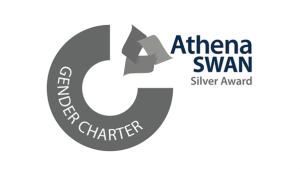In this blog post, Deputy Vice-Chancellor and Provost, Professor Judith Squires, reflects on the University’s recent Athena Swan Silver Award and the work that is left to be done to achieve gender equality.
It is a testament to the exceptional teamwork of colleagues across the University that we recently achieved a ‘highly commended’ institutional Athena Swan Silver award.
We can all be proud that Bristol was one of the founding signatories of the Athena Swan Charter. When it launched in 2005, the Charter looked to encourage and recognise the career progression and employment of women in Science, Technology, Engineering, Maths and Medicine (STEMM) – sectors which typically show a strong imbalance towards men.
In the intervening years, we’ve seen great progress in our community, particularly in the School for Biochemistry which successfully achieved the fantastic and very rare accolade of gold award last year.
At the institutional level, in 2018 we committed to not only tackle gender inequality, but also to taking a gender and ethnicity intersectional approach to our work. We also committed to eliminating the Gender Pay Gap (GPG) in the Professoriate +/-3%, and to increase the number of female Professors to 30% by 2023.
We have since made excellent progress across the board, particularly in relation to issues of representation, culture, and career progression. It was the thorough and detailed intersectional analysis of our quantitative and qualitative student and staff data that was particularly commended in our application for not only highlighting our current key gender equality issues but also discussing the positive impact of initiatives put in place since our last Athena Swan application.
We have seen the successful implementation of a new academic promotions framework that more effectively rewards and recognises the full range of academic achievements, the Elevate programme, Bristol Women’s Mentoring Scheme and the Female Leadership Initiative. These initiatives, coupled with other specific policy changes, such as our reimbursement of childcare and caring costs for conference and training attendance, have resulted in improved career opportunities for all areas of the pipeline.
Significantly, in 2020 our plans to eliminate the gender pay gap were set out in a landmark Collective Agreement between the University and Bristol UCU – the first agreement of its kind at a UK university. It included:
- Increased opportunities and support for flexible working;
- A new Promotions Framework that would not under-value work that tends to be disproportionality undertaken by women;
- Improved academic career support and development.
These actions have contributed to the continued rise in female staff successfully applying for promotion to Associate Professor and Professor during the period of successive Swan applications (38% of successful cases were female in 13/14, 45% in 16/17, 52% in 21/22), resulting in 31% female professors in 21/22, exceeding the target of 28% that we had set ourselves for this point.

Elsewhere, I am really pleased we have made significant progress amongst the student community with regards to diversity of ethnicity, by increasing targeted scholarship opportunities for groups underrepresented within HE, narrowing of the awarding gap from 12.7% (2017) to 7.6% (2021).
While we have seen great progress in recent years, our most recent Self-Assessment process made clear that while we have met our aspirations to date, there is still much work to be done. We have now identified new EDI priorities and targets to 2030, including 50% female professors and eradicating the gender pay gap altogether. We are also collaborating with the Student Union, the 1752 Group, and the Office for Students to tackle gender-based violence and we will continue to remain responsive to issues arising from our students and staff, for example via our Voice and Influence group, which is foregrounded with an intersectional focus by providing a forum for Chairs of Staff Networks to discuss common issues of equality inclusion across multiple identities.
Our ambitions are high, and our institutional journey towards equality continues. We will get there, and our new University Strategy, coupled with our new gender action plan and Swan Implementation Group, will accelerate the rate of change over the coming years. We are absolutely committed to reaching these targets to harness the passion of colleagues across the University to foster a supportive, inclusive and caring environment for our whole community.
Further information: Athena Swan Charter | Advance HE (advance-he.ac.uk)

